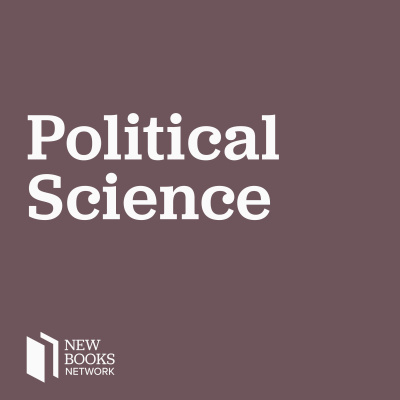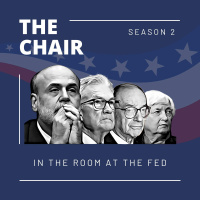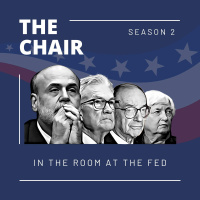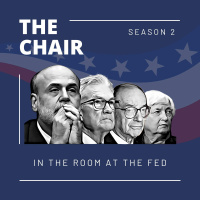Synopsis
Interviews with Political Scientists about their New Books
Episodes
-
Alan Chong, "The International Politics of Communication: Representing Community in a Globalizing World" (U Michigan Press, 2025)
10/05/2025 Duration: 01h16minIn an era of globalization, international communication constantly takes place across borders, defying sovereign control as it influences opinion. While diplomacy between states is the visible face of international relations, this “informal diplomacy” is usually less visible but no less powerful. Information politics can be found in propaganda, Internet politics, educational exchanges, tourism, and even popular film. In The International Politics of Communication: Representing Community in a Globalizing World (University of Michigan Press, 2025) by Dr. Alan Chong examines this informational dimension of international politics, investigating how information is generated, conveyed through channels, and directed specifically at audiences. While citizens are often portrayed as faithfully loyal supporters and beneficiaries of the modern nation-state—a fiction supported by passports, identification papers, and other notarized credentials—they are subject to the pulls of loyalty from transnational tribal affiliatio
-
Democracy for Sale: Death by Dark Money
09/05/2025 Duration: 01h11minOn this edition of Ctrl Alt Deceit: Democracy in Danger, we are live at the Royal United Services Institute. Nina Dos Santos and Owen Bennett Jones are joined by a world-class panel to discuss the dangers posed by the waves of dark money threatening to overwhelm our democratic institutions.Panelists:--Tom Keatinge, Director, Centre for Finance and Security, RUSI--Darren Hughes, Chief Executive, Electoral Reform Society--Gina Neff, Executive Director, Minderoo Centre for Technology & Democracy at the University of Cambridge, and Professor of Responsible AI, Queen Mary University London Producer: Pearse Lynch Executive Producer: Lucinda Knight Learn more about your ad choices. Visit megaphone.fm/adchoices Support our show by becoming a premium member! https://newbooksnetwork.supportingcast.fm/political-science
-
Diana Graizbord, "Indicators of Democracy: The Politics and Promise of Evaluation Expertise in Mexico" (Stanford UP, 2024)
08/05/2025 Duration: 52minThe spread of democracy across the Global South has taken many different forms, but certain features are consistent: implementing a system of elections and an overarching mission of serving the will and well-being of a country's citizens. But how do we hold politicians accountable for such a mission? How are we to understand the efficacy of the policies they put forth? In Indicators of Democracy (Stanford UP, 2024), Diana Graizbord exposes the complex, often-hidden world of the institutions that are meant to ensure democratic accountability and transparency. Taking the case of Mexico's National Council for the Evaluation of Social Development Policy (CONEVAL), Graizbord provides a deep theory of what happens when democratic aspirations intersect with technocratic ambitions. Analyzing what it takes to establish and sustain monitoring and evaluation as a form of official state expertise, Graizbord is able to put forward the contours of technodemocracy—a democratic political project that hinges on the power of
-
Martin Thomas, "The End of Empires and a World Remade: A Global History of Decolonization" (Princeton UP, 2024)
07/05/2025 Duration: 48minEmpires, until recently, were everywhere. They shaped borders, stirred conflicts, and set the terms of international politics. With the collapse of empire came a fundamental reorganization of our world. Decolonization unfolded across territories as well as within them. Its struggles became internationalized and transnational, as much global campaigns of moral disarmament against colonial injustice as local contests of arms. In this expansive history, Martin Thomas tells the story of decolonization and its intrinsic link to globalization. He traces the connections between these two transformative processes: the end of formal empire and the acceleration of global integration, market reorganization, cultural exchange, and migration. The End of Empires and a World Remade: A Global History of Decolonization (Princeton UP, 2024) shows how profoundly decolonization shaped the process of globalization in the wake of empire collapse. In the second half of the twentieth century, decolonization catalyzed new internat
-
Time to Rethink Democracy: Participatory and More-Than-Human Perspectives
06/05/2025 Duration: 39minThis is a special episode that features a conversation between Sonia Bussu and Hans Asenbaum on democracy, capitalism, climate and the practices and prospects of participatory, deliberative and more-than-human democracy to transform their relationship. Can we rethink democracy beyond the liberal-democratic institutions that were created as part of the bargain for fossil-fuel-driven, Western-centric economic growth? What does and could democratic participation look like? What does it mean to include the non-human in our understanding of democracy? Sonia Bussu is Associate Professor in Public Policy at the University of Birmingham. She researches participatory democracy and in her work she uses participatory and creative methods for research and public engagement. She has led on projects on youth participation to influence mental health policy, youth employment policies, as well as coproduction of research on health and social care integration, and leadership styles within collaborative governance. She is scie
-
Stephen H. Legomsky, "Reimagining the American Union: The Case for Abolishing State Government" (Cambridge UP, 2024)
05/05/2025 Duration: 59minSince American president Donald Trump was elected to a second term, it is common to hear citizens, journalists, and public officials distinguish between the laws and leaders of their states and the national government. Those who oppose Trump’s policies with regard to reproductive rights, gun violence, LGBTQ+, education, police, and voting often present state constitutions, courts, laws, culture, and leaders as a bulwark against Trump’s autocratic rule. But Professor Stephen H. Legomsky sees it differently. His new book, Reimagining the American Union: The Case for Abolishing State Government (Cambridge University Press 2025) argues that – if we care about democracy – we should imagine an America without state government. No longer a union of arbitrarily constructed states, the country would become a union of one American people. Reimagining the American Union understands state government as the root cause of the gravest threats to American democracy. While some of those threats are baked into the Constituti
-
Jerome Powell: “We don't think you're a straight shooter"
04/05/2025 Duration: 51minMore than any one institution, the US Federal Reserve drives global capital markets with its decisions and communications. While its interest rates are set by a committee, for almost a century, the Fed’s philosophy and operational approach have been moulded by one person: the Chair of the Board of Governors. In the first series of The Chair, Tim Gwynn Jones talked to authors of books about the Fed's foundational Chairs – Marriner Eccles, Bill Martin, Arthur Burns, and Paul Volcker. In this second series, he covers the people who chaired the Fed through the post-1990 period of financialisation, globalisation, and – perhaps today – deglobalisation. This eighth and final episode covers the life and times of the current chair, Jerome ("Jay") Powell - the technocratic lawyer-turned-banker who managed the global economy through two unprecedented disasters: the Covid pandemic and Donald Trump’s protectionist trade policies. As the episodes about Martin, Burns, and Volcker all attest, Powell isn't the first chairma
-
Janet Yellen: “She had a view that the world was on fire”
03/05/2025 Duration: 59minMore than any other single institution, the US Federal Reserve drives global capital markets with its decisions and communications. While its interest rates are set by a committee, for almost a century, the Fed’s philosophy and operational approach have been moulded by one person: the Chair of the Board of Governors. In the first series of The Chair, Tim Gwynn Jones talked to authors of books about the Fed's foundational Chairs – Marriner Eccles, Bill Martin, Arthur Burns, and Paul Volcker. In this second series, he covers the people who chaired the Fed through the post-1990 period of financialisation, globalisation, and – perhaps today – deglobalisation. The third episode of the second series covers Janet Yellen – not only the first woman to become Fed Chair but the first person of either sex to lead the Fed, the Treasury, and the Council of Economic Advisors. To discuss Ben Bernanke’s successor, Tim is joined by Jon Hilsenrath, author of Yellen: The Trailblazing Economist Who Navigated an Era of Upheaval
-
Ben Bernanke: “Like being a paleontologist”
02/05/2025 Duration: 44minMore than any other single institution, the US Federal Reserve drives global capital markets with its decisions and communications. While its interest rates are set by a committee, for almost a century, the Fed’s philosophy and operational approach have been moulded by one person: the Chair of the Board of Governors. In the first series of The Chair, Tim Gwynn Jones talked to authors of books about the Fed's foundational Chairs – Marriner Eccles, Bill Martin, Arthur Burns, and Paul Volcker. In this second series, he covers the people who chaired the Fed through the post-1990 period of financialisation, globalisation, and – perhaps today – deglobalisation. Episode two of the second series covers the life and crisis-era times of Ben Bernanke, the man who filled Alan Greenspan’s big shoes and ran the Fed from 2006 to 2014. A shy but world-renowned monetary economist and historian of the Great Depression, Bernanke was left holding the proverbial bomb when the financial system came close to collapse in 2008. To
-
Alan Greenspan: “The man who knew”
01/05/2025 Duration: 49minMore than any other single institution, the US Federal Reserve drives global capital markets with its decisions and communications. While its interest rates are set by a committee, for almost a century, the Fed’s philosophy and operational approach have been moulded by one person: the Chair of the Board of Governors. In the first series of The Chair, Tim Gwynn Jones talked to authors of books about the Fed's foundational Chairs – Marriner Eccles, Bill Martin, Arthur Burns, and Paul Volcker. In this second series, he covers the people who chaired the Fed through the post-1990 period of financialisation, globalisation, and – perhaps today – deglobalisation. The first episode of the second series explores Alan Greenspan, the chairman who followed Paul Volcker and ran the Fed from 1987 until 2006. Once bestowed with “Maestro” status, Greenspan – who turns 100 in March 2026 – has seen his reputation deflate in the wake of the post-2008 financial crisis. To discuss the fallen Maestro, Tim is joined by Sebastian M
-
Nicholas D. Anderson, "Inadvertent Expansion: How Peripheral Agents Shape World Politics" (Cornell UP, 2025)
01/05/2025 Duration: 34minTerritorial expansion is typically understood as a centrally driven and often strategic activity. But Nicholas D. Anderson’s new book, Inadvertent Expansion (Cornell University Press, 2025), shows that nearly a quarter of great power coercive territorial acquisitions since the nineteenth century have in fact been instances of what the author calls “inadvertent expansion.” A two-step process, inadvertent expansion first involves agents on the periphery of a state or empire acquiring territory without the authorization or knowledge of higher-ups. Leaders in the capital must then decide whether to accept or reject the already-acquired territory. Through cases ranging from those of the United States in Florida and Texas to Japan in Manchuria and Germany in East Africa, Anderson shows that inadvertent expansion is rooted in a principal-agent problem. When leaders in the capital fail to exert or have limited control over their agents on the periphery, unauthorized efforts to take territory are more likely to occu
-
The Vote Gap: What’s Pulling Young Men and Women Apart?
30/04/2025 Duration: 55minWhy are young men leaning right while young women shift left? Hosts Nina dos Santos and Owen Bennett-Jones speak with NYU’s Scott Galloway, political analyst Sophie Stowers, and commentator Oliver Dean to explore the forces behind this growing divide. Whether it’s a broken social contract where young people no longer believe they will lead better, more prosperous lives than their parents or the work of algorithms that feed off rage and division, the implications are profound. This podcast was recorded live at NYU London, in front of an audience of students who are part of a generation searching for increasingly radical solutions to fix society. Guests Scott Galloway is a Professor of Marketing at NYU Stern School of Business where he teaches Brand Strategy and Digital Marketing to second-year MBA students. He is also a Bestselling author, professor and entrepreneur. Sophie Stowers - A Research Associate at UK in a Changing Europe. Her background is in British and European politics, and her research focuses
-
The Good Father Syndrome: Why Strongmen Still Seduce
29/04/2025 Duration: 32minIn this episode of International Horizons, RBI director John Torpey speaks with Stephen Hanson and Jeffrey Kopstein, co-authors of The Assault on the State: How the Global Attack on Modern Government Endangers Our Future (Polity Press, 2024). In this conversation, they discuss how today’s right-wing movements, from the United States to Hungary, are waging a new form of politics that undermines the very foundations of the modern, rules-based state. Drawing on Max Weber’s concept of “patrimonialism,” Hanson and Kopstein explore how these leaders erode public trust, demolish impersonal bureaucracies, and replace rational governance with personal loyalty and whim. Along the way, they examine the role of conspiracy theories, the rise of “deep state” narratives, and the uneasy alliances connecting libertarians, Christian nationalists, and advocates of an all-powerful executive. Learn more about your ad choices. Visit megaphone.fm/adchoices Support our show by becoming a premium member! https://newbooksnetwork.suppo
-
Caitlin Killian, "Understanding Reproduction in Social Contexts" (Bloomsbury, 2025)
28/04/2025 Duration: 01h07minIn today's post-Roe v. Wade world, U.S. maternal mortality is on the rise and laws regarding contraception, involuntary sterilization, access to reproductive health services, and criminalization of people who are gestating are changing by the minute. Today I’m joined by Dr. Caitlin Killian, the editor of and one of the contributors to a new book from Bloomsbury Academic, Understanding Reproduction in Social Contexts: A Reader. I’m also pleased to host two of the chapter authors, Drs. Nancy Hiemstra and Jaya Keaney. Using a reproductive justice framework, Understanding Reproduction in Social Contexts walks students through the social landscape around reproduction through the life course. Chapters by cutting-edge reproductive scholars, practitioners, and advocates address the social control of fertility and pregnancy, the promises and perils of assisted reproductive technologies, experiences of pregnancy, miscarriage, abortion, and birth, and how individuals make sense of and respond to the cultural, social, a
-
Ian Boyd, "Science and Politics" (Polity, 2024)
27/04/2025 Duration: 01h11minThe recent coronavirus pandemic proved that the time-old notion seems now truer than ever: that science and politics represent a clash of cultures. But why should scientists simply “stick to the facts” and leave politics to the politicians when the world seems to be falling down around us? Drawing on his experience as both a research scientist and an expert advisor at the centre of government, Ian Boyd takes an empirical approach to examining the current state of the relationship between science and politics. He argues that the way politicians and scientists work together today results in a science that is on tap for ideological (mis)use, and governance that fails to serve humanity’s most fundamental needs. Justice is unlikely―perhaps impossible―while science is not a fully integrated part of the systems for collective decision-making across society. In Science and Politics (Polity, 2024), Boyd presents an impassioned argument for a series of conceptual and structural innovations that could resolve this fun
-
Russell Blackford, "How We Became Post-Liberal: The Rise and Fall of Toleration" (Bloomsbury, 2023)
26/04/2025 Duration: 01h20minLiberalism is in trouble. As a set of ideas, it has lost much of its historical authority in guiding public policy and personal behaviour. In this post-liberal climate, Russell Blackford asks whether liberalism is truly over. How We Became Post-Liberal: The Rise and Fall of Toleration (Bloomsbury, 2023) examines how Western liberal democracies became nations where traditional liberal principles of toleration (religious and otherwise), individual liberty and freedom of speech are frequently dismissed as outdated or twisted to support conservative policies. Blackford traces the lineage of liberalism from problems of toleration that emerged when Christianity triumphed in the late centuries of classical antiquity, with comparison to non-Western civilizations. The political and philosophical story culminates in the recent development – over the past 30 to 50 years – of post-liberal ideologies in the West. At each stage, Blackford discusses arguments for and against liberal principles, identifying why no argument t
-
Randy Laist and Brian Dixon, "Figures of Freedom: Representations of Agency in a Time of Crisis" (Fourth Horseman, 2024)
25/04/2025 Duration: 50minFigures of Freedom: Representations of Agency in a Time of Crisis takes on the idea and terminology of freedom, examining our understanding of this concept and our relationship to the word itself as well as what it means to society, culture, and politics. Randy Laist and Brian A. Dixon, two scholars who often explore popular culture to better understand the society and politics all around us, have brought their admirable skills to Figures of Freedom, where they have assembled a broad array of contributors exploring freedom in a host of different venues and artifacts. The thrust of the book is to examine representations of freedom in the early 21st century, and the authors look at this evolving nature of freedom in popular culture 21st century texts, where they trace this shifting discourse across time and geography. Broad questions are at the heart of Figures of Freedom: who gets to be free? What is freedom? How does freedom work or play out in different situations and settings? Is freedom itself an archaic i
-
Maurizio Ferrera, "Politics and Social Visions: Ideology, Conflict, and Solidarity in the EU" (Oxford UP, 2024)
24/04/2025 Duration: 01h22minThe starting point of this book is the 'civil war' of ideas that broke out during the early 2010s about the purpose and even the desirability of the European Union as a polity, with a number of right-wing populist formations openly advocating for exiting the Union. The sovereign debt crisis triggered a spiral of ideological decommunalization: national leaders seemed to have lost that sense of 'togetherness' and mutual bonds that had been laboriously developed over decades of integration. Politics and Social Visions: Ideology, Conflict, and Solidarity in the EU (Oxford UP, 2024) explores this politically disruptive process from an ideational perspective, on the assumption that symbols and visions play a crucial role. In processes of polity formation, ideologies offer competing partisan views, but tend to converge along the 'communal' dimension, which defines the nature and boundaries of the emerging polity. This convergence has been a challenge for the EU since its origins, as it has required the construction
-
China’s Trade War Strategy: How Xi Jinping Uses Autocracy, Fear, and Innovation to Compete with the West
23/04/2025 Duration: 48minHosts Nina dos Santos and Owen Bennett-Jones analyze the global fallout after Donald Trump plunged America and the world into a trade war with China. David Rennie, The Economist’s geopolitics editor and former Beijing and Washington D.C. bureau chief, joins the podcast to unpack how Xi Jinping is playing the long game and playing to win. In this episode, we explore Xi’s high-stakes strategy in the global trade war. From embracing economic pain to fostering innovation under autocracy, China is challenging Western dominance on every front. However, as the controversy over British Steel demonstrates, Beijing’s drive to exert control often at the expense of freedoms abroad—risks alienating future partners. In the second half, activist Chloe Chung shares her personal story of falling afoul of the Chinese authorities. A pro-democracy campaigner, Chloe awoke in December to news that police in Hong Kong had issued a HK$1 million ($128,000; £102,000) bounty for information leading to her capture abroad. With democr
-
Marcus Kreuzer, "The Grammar of Time: A Toolbox for Comparative Historical Analysis" (Cambridge UP, 2023)
22/04/2025 Duration: 56minIn The Grammar of Time: A Toolbox for Comparative Historical Analysis (Cambridge UP, 2023), political scientist Marcus Kreuzer synthesises the different strands and traditions of Comparative Historical Analysis to show how interpretive and positivist research designs might complement rather than compete with one another. Like the contents of the book, our discussion on this episode of New Books in Interpretive Political and Social Science is wide-ranging and lively, addressing topics like the many types of time, the meaning of its “grammar”, the importance of context, debates over transparency and replicability, and why pedagogy matters. Whether you are persuaded by Kreuzer’s advocacy for CHA or not, you will surely appreciate his enthusiasm to communicate about it, his deep knowledge of methodology and respect for its various traditions, and his concern to build (rather than burn) methodological bridges. Like this episode? Why not check out others in this special series on the political science channel of th
















